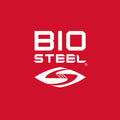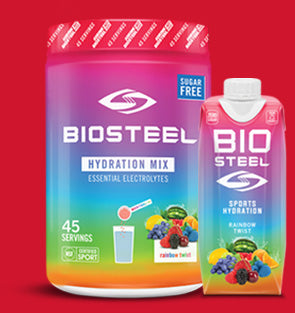27.04.22
Are Vegan Athletes at a Disadvantage in Pro Sports?
Vegan diets are gaining popularity, largely due to promising health benefits and positive environmental impact. Those who follow a vegan diet abstain from the consumption of all animal products including meat, fish, eggs and dairy. Research confirms that a plant-based diet, such as the vegan diet, is associated with lower risk of chronic diseases including obesity, type 2 diabetes, cardiovascular disease and cancer (1). It’s no wonder that so many health conscious people, including athletes, are adopting this lifestyle. But, is a vegan diet as beneficial for athletic performance as it is for health? Surprisingly, research on this topic is still quite limited. Some studies show that vegan athletes have similar or better VO2max scores, improved exercise capacity and reduced oxidative stress and inflammation due to increased carbohydrate and antioxidant intake, while other literature highlights the high risk of nutrient deficiencies that negatively affect performance (2). Let's examine the nutritional requirements for optimal athletic performance and how the vegan diet compares.
Nutritional Requirements of Athletes
To optimize performance and recovery, athletes rely on well-tailored nutrition plans that provide a specific balance of energy, macro-, and micronutrients. Athletes take part in consistent grueling training and intense competition. This type of lifestyle creates a massive nutrient requirement, and calls for specific attention to the adequacy of nutritional intake.
Energy
Active people expend far more energy than those who are sedentary. It’s no surprise then, that athletes, whose careers revolve around exercise and movement, have a much higher calorie requirement than your average person. The more physically demanding the sport, the higher the calorie requirement. In general, it is recommended that athletes consume enough calories to maintain weight during competition season (3). Low energy intake can result in negative health outcomes, lowered immunity, injuries, and subpar performance and recovery (3). Research shows that vegan diets are lower in calories, in part due to the restriction of animal products, which make up a large portion of calorie intake for omnivores (4). Plant-based diets are also significantly higher in fiber (1), which reduces energy density and promotes early satiety. For the average person, this is a great thing. But for an athlete, feeling full quickly can make it harder to consume enough calories to support health, performance and recovery.
Macronutrients
Energy intake can be further split into macronutrients. The 3 macronutrients are protein, carbohydrates, and fat. Most important for athletic performance are protein and carbohydrates.
Protein
Athletes require more protein than the general population (5). Protein provides the building blocks for muscle repair and is non-negotiable for strength and recovery. When people hear the word vegan, often the first thing that comes to mind is protein. Vegans tend to eat less protein than their omnivore counterparts (6). Given that the majority of people’s protein intake comes from animal products, it makes sense that by removing this food group, a vegan’s protein intake would be reduced. Plant-based foods do provide protein, albeit in smaller concentrations than animal foods, and usually contain a large percentage of one of the other macronutrients. For example, a chicken breast is 80% protein and 20% fat, conversely a chickpea is 22% protein and 65% carbohydrate. Plant proteins are less easily digested, and tend to be “incomplete”, meaning they are missing important amino acids and are often low in branched chain amino acids (BCAA) which are important for muscle synthesis (7). This can be addressed by increasing protein targets by 10% higher than those of omnivore athletes (3), and by thoughtfully consuming a wide variety of plant protein sources including grains, nuts, seeds, beans, and lentils (8). In addition, research shows that vegan athletes may benefit from protein supplementation (9). A well designed vegan protein powder can provide complete protein in an isolated form, without other macronutrients. Some include additional vegan BCAA to support muscle protein synthesis and recovery (7). A protein supplement can be a helpful addition to a vegan diet by simplifying meal planning and making protein intake goals more attainable.Carbohydrates
Carbohydrates are the muscle’s primary source of energy. They also play a role in muscle recovery post-exercise. Carbs are stored in the muscles and liver as glycogen. For optimal performance, athletes must eat enough carbs to keep glycogen stores topped up, and a steady supply of glucose in the blood to fuel exercise. This equates to 250-1500g of carbohydrates per day, depending on level of activity and body size(11). Since carbohydrates come from plants, a vegan diet is not the limiting factor for achieving this level of intake. In fact, eating enough carbohydrates to optimize performance has been found to be challenging for many athletes, regardless of being vegan or not, due to digestive discomfort caused by the large volume of food intake required (11). In addition, since many healthy carb sources are high in fiber, special attention needs to be made to choose food sources that provide enough carbohydrates to hit targets, with the right amount of fiber to provide health benefits without excessive fullness.
Fat
Athletes need adequate fat intake to provide essential fatty acids to support muscle synthesis through hormone production, and inflammation reduction to promote recovery. Athletes should aim for 30% of calories from healthy fats, similar to the general population (11). Although vegan diets tend to be lower in fats (1), achieving this target through vegan sources is relatively simple, and fat sources are often healthier (1). The one area that may prove to be challenging is consuming enough omega 3 fatty acids, which are found primarily in fish and seafood, resulting in lower consumption by vegans (10). Athletes need 1-2g of omega 3 fatty acids per day (12). Plant sources such as flax seeds, hemp seeds, and walnuts can contribute to this target, along with supplemental algae-based oil (1).
Micronutrients
Vitamins and minerals play an important role in almost every process in the human body. They contribute to energy production, immune function, bone health, muscle and tissue repair, etc. Exercise results in an increased micronutrient requirement (3). Of particular importance for athletes are beta-carotene, vitamins B, C, D and E, and minerals iron, zinc, magnesium and selenium (3). Athletes who eliminate food groups are at greatest risk for deficiency (3). Micronutrients of special concern for vegan athletes are B12, iron, calcium, and zinc, as these are largely found in animal products (1). In contrast, vegan diets tend to be higher in vitamins C & E, folic acid, magnesium, antioxidants and phytonutrients than omnivore diets (1). With proper supplementation, meal planning, and consumption of fortified foods, all micronutrient requirements can be met (1), and it’s possible that vegans could actually achieve a better micronutrient status than omnivores.
The Verdict
When we boil it all down, there are some extra nutritional challenges that vegan athletes may encounter. While meeting nutritional adequacy can be difficult for all athletes, those who practice a vegan diet may be at higher risk for nutrient deficiencies, especially when it comes to protein, and some vitamins and minerals. However, with careful meal planning, preparation, strategic replacement of animal foods with plant foods of similar nutritional value, and supplementation, all nutrient requirements can be met. More research is needed to examine how athletic performance is affected by a vegan diet, but given the facts above, it is reasonable to deduct that if nutritional requirements are met, performance should not be negatively affected. The one obvious disadvantage is that proper planning requires more time and resources, but the additional health benefits of following a plant-based diet may prove to be a worthy tradeoff.
Sources
- https://academic.oup.com/ajcn/article/89/5/1627S/4596952?login=true#110695953
- https://www.mdpi.com/2072-6643/13/2/491/htm
- https://journals.lww.com/acsm-msse/Fulltext/2009/03000/Nutrition_and_Athletic_Performance.27.aspx
- https://www.mdpi.com/2072-6643/6/3/1318/htm
- https://www.tandfonline.com/doi/full/10.1080/02640414.2011.619204
- https://link.springer.com/article/10.2165/00007256-200636040-00002
- https://academic.oup.com/jn/article/145/9/1981/4585688?login=false
- https://www.jandonline.org/article/S0002-8223(09)00700-7/fulltext
- https://nutritionj.biomedcentral.com/articles/10.1186/1475-2891-12-86
- https://www.jandonline.org/article/S0002-8223(09)00700-7/fulltext#secd17423118e340
- https://jissn.biomedcentral.com/articles/10.1186/s12970-018-0242-y
- http://www.omega3galil.com/wp-content/uploads/2013/10/Omega-3-Fatty-Acids-and-Athletics.pdf



